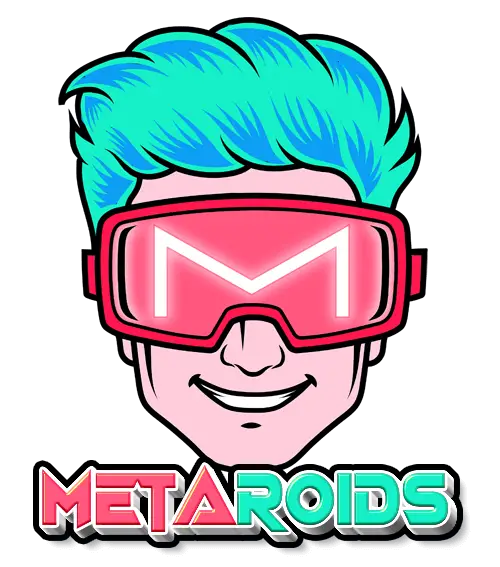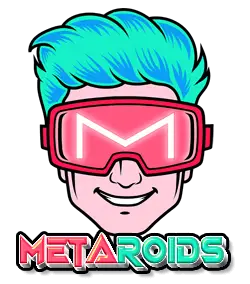Microsoft is one of the top iconic brands in tech. And although Bill Gates said some not-so-nice things about Bitcoin, he has high regard for blockchain. So what is this “Microsoft blockchain” that people talk about?
Well, it’s part of Microsoft Azure, a set of cloud services for enterprises.
The Microsoft blockchain enables companies to create a shared ledger for themselves and their partners or customers. When using the blockchain, any member of the network can view the data in real-time.
Furthermore, other Azure cloud products blend well with its blockchain, allowing Microsoft to offer a range of services to clients.
They also integrated their blockchain platform with their game console, Xbox, to serve as proof of concept.
The Azure blockchain works similarly to IBM’s Hyperledger Fabric, which also allows enterprises to build these so-called consortiums or associations of several companies/partners.
The Microsoft blockchain will likely be a closed blockchain, which means someone is in control, and hence, there is a single point of failure.
This is one of the major concerns of centralized or permissioned networks. And, many blockchain experts like Vitalik Buterin, Andreas Antonopoulos, and Jed McCaleb have publicly expressed their opinion against its use case.
But let’s give Microsoft the benefit of the doubt. Who knows? They might be onto something.
Starbucks
Most coffee farmers have no clue where their coffee beans go the moment they sell them to roasting factories. In the same way, most end-consumers in coffee shops don’t know where their cup of brewed coffee came from.
But even more so, neither of them knows where these coffee beans have gone through while in between transit.
That’s where blockchain comes in.
Starbucks has found a way to connect coffee growers and drinkers through its blockchain-powered mobile app.
The Starbucks app now allows you to trace a coffee’s journey from bean to your cup.

How useful is it?
Not very.
I know there are some people who would want to know about the tales of how their legendary cup of goodness came about. But personally, I wouldn’t care.
And by and large, most of you would just sip it and carry on your day.
On the flipside, it does empower the growers.
In case you didn’t know, most coffee farms are located in sub-Saharan Africa. The majority of farmers there know less about business and even lesser in economics, which puts them at a disadvantage. This makes them prone to unfair pricing or even outright swindles from coffee factory owners that buy their beans.
At the very least, knowing how far their coffee can go will give them an idea on the value of their product.
If they find that their coffee has reached, perhaps, London, then they’ll know it’s “export quality”. Then, they have a solid valuation for their beans and can price accordingly.
Nasdaq
Nasdaq is quite an influential company. After all, it introduced the world’s first electronic trading platform in the market back in 1971.
In 2016, the company built the Nasdaq Financial Framework (NFF), a centralized mainframe that powers multiple business applications across the capital market industry.
Recently, they integrated NFF with Microsoft’s blockchain Azure.
Now you might be wondering why would a security exchange need to integrate with a blockchain? And so am I honestly.
But according to the senior vice president:
Our industry is evolving faster than ever with the advent and advancement of cloud, blockchain, machine intelligence and others. Key players in the industry are looking to these technologies to explore how they can become more effective and efficient, but also gain competitive advantage
It’s hard to imagine how a traditional security market company can benefit from a blockchain. But based on this quote, it seems that he thinks that blockchain can make their platform effective and efficient.
Effective? Perhaps, but effective in terms of what?
Efficient? Absolutely not!
Blockchain is not known for efficiency. If efficiency is what you want, then go get a centralized database. That is ten to a hundred times more efficient than a blockchain.
But according to Nasdaq, their blockchain capabilities will enable them to build a multi-ledger platform for trading.
With blockchain, the NFF will allegedly be interoperable with different technologies. This will allow them to manage the delivery, payment, and settlement of transactions across multiple blockchains with different payment mechanisms.
They did say that their blockchain-based database will be “ledger-agnostic”, which means any blockchain can be linked to it.
But is that even doable? They are a regulated company. Imagine if they get mixed up with, say, a privacy-focused blockchain like Monero, which is notorious for darknet deals or, so I’ve heard.
I don’t think the SEC would let that slip even once. So basically, I’m confused. I don’t know how they could profit from this.
If they wanted to be more interoperable, why not just share their API and link their platform with other platforms? That way they could create a multi-layer ledger, even if it’s centralized.
So this doesn’t make sense to me. I don’t know if they are thinking this through or just riding with the hype.
GE Aviation

This one makes more sense.
Mechanical operations are mission-critical when you’re five miles in the sky. That’s why airlines cannot use a component or engine if they cannot trace its full history.
But this is easier said than done. An airplane has, on average, six million parts. Now imagine tracking the history of each…with paper documentation!
To replace this cumbersome process, GE Aviation decided to utilize the Microsoft Azure blockchain to track the life of each part. This allows them to view their data in real-time any time they want.
According to the aviation company, the blockchain made the process more automated and scalable, saving them significant costs and time.
3M
3M is a multinational multi-industry company that manufactures a vast array of products including adhesives, insulating materials, protective equipment, dental equipment, medical supplies, and about 60,000 other products.
The conglomerate decided to use the Microsoft blockchain to improve its supply chain management. In other words, they wanted the flow of goods, from raw materials to final products, to be more reliable, secure, and smooth.
Through blockchain technology, they are able to track the life of each component of a product.
But why would they want to do that?
Counterfeits are not uncommon in supply chain. For instance, if you buy medicine, how would you know that the ingredients are actually those that are listed on the label?
When billions of counterfeit medication are sold every year in the US alone!?
Not only does it add to 3M’s costs of replacing those counterfeit products, but also threatens public safety.
So utilizing blockchain creates a win-win situation for both 3M and its customers. The conglomerate is able to cut costs while the consumer will have safer original products.
Furthermore, 3M has created a new business model called Label-as-a-Service, which it has applied to its own supply chain while exploring new ways to sell the solution to its customers.
Singapore Airlines
Another airlines using blockchain. But unlike the other one, this doesn’t make any sense.
No they are not using Microsoft’s blockchain to track aircraft parts. They are using it to build loyalty program. Seriously?
So Singapore Airlines has a digital wallet called KrisPay.
KrisPay is a wallet that enables customers to stack up loyalty points according to the number of miles they have traveled with the airline. They can subsequently use these points to shop at partner outlets.
Why did they use blockchain?
They wanted to build a shared ledger for their network partners — the stores that will accept their customers’ loyalty points. And for them, blockchain is the best way to do that.
I’m not sure if that’s the right choice. They might as well be burning cash.
Several thousands of companies that have loyalty programs are doing just fine without a blockchain.
Conclusion
The Azure blockchain is one many services offered by Microsoft. Despite their technology and use case being criticized by blockchain experts, it would be wrong to write them off immediately.
They’ve been around for a long time. Let’s give Microsoft the benefit of the doubt. Who knows? Enterprise blockchains might proliferate in the future.
Does that mean I’m gonna invest in enterprise blockchain companies? No. Atleast not at the moment. But I am keeping an eye on them. You should too. It couldn’t hurt.
Join our newsletter as we build a community of AI and web3 pioneers.
The next 3-5 years is when new industry titans will emerge, and we want you to be one of them.
Benefits include:
- Receive updates on the most significant trends
- Receive crucial insights that will help you stay ahead in the tech world
- The chance to be part of our OG community, which will have exclusive membership perks



